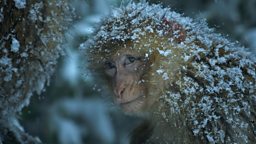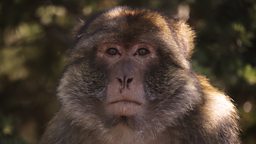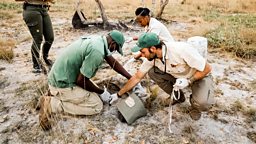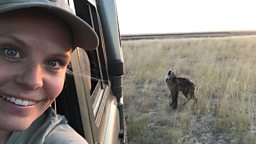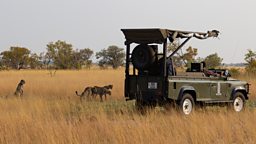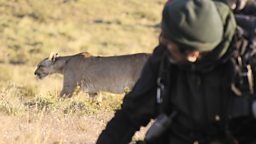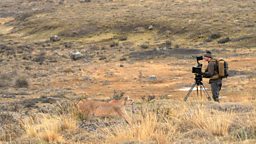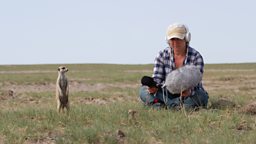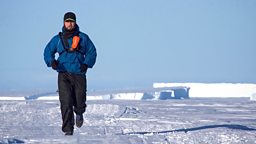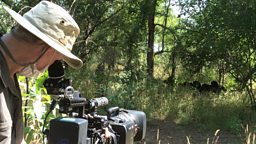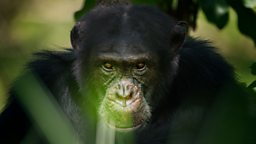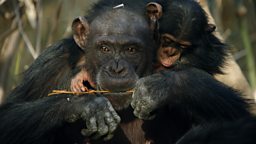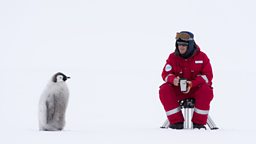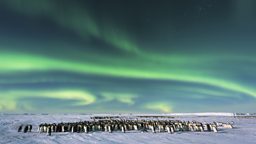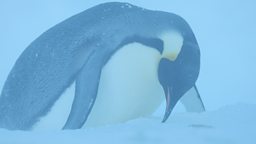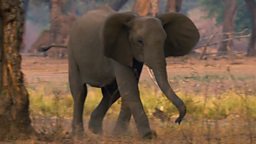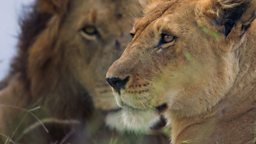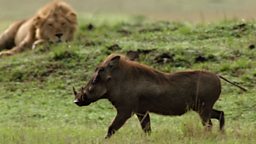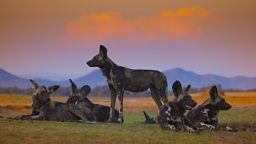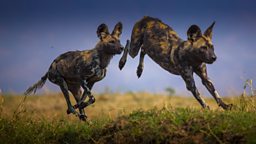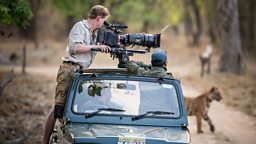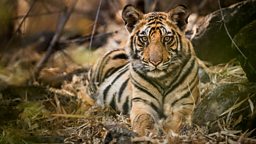The end of the polar night
By Will Lawson
One of the most unique experiences of living in Antarctica, while filming 大象传媒 Dynasties’ Emperor Penguins episode, was the polar night. This is when the sun doesn’t rise above the horizon for two months; from around May 21st till July 21st. During this time, the lack of sun plays on your physiology but also your psychology. Without a daily rhythm, our sleep patterns were affected and our motivation levels became low.
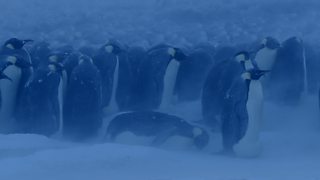
Some of us tried to counteract the effect using ‘SAD’ (seasonal affective disorder) lamps and taking Vitamin D supplements. Due to the lack of light, each day started to roll into the next without us really realising and it became a bit like Groundhog Day. We tried to make the most of the period’s festive feel so as a welcome treat, we celebrated Christmas Day a little early - on June 21st, Midwinter's Day. ‘Midwinter’ is considered special all over Antarctica, and it’s tradition that each overwintering station sends one another a Midwinter’s Day greeting card, just like Christmas cards!
During the polar night, the amount of activity in the penguin colony also reduces. The females have gone to sea for two months to get nice and fat so they can feed their chicks when they return. The males are left alone trying to survive the winter weather and hunker down to stay warm. So by the end of the polar night, there hadn't been any dramatically new behaviour to film for a while. Therefore, we had a strong sense of anticipation around the sun coming back and what it may bring.
We knew that the sun’s return coincides with the eggs hatching and female penguins returning - it’s how the emperors have adapted, to respond to certain environmental cues that trigger the next stage of their breeding - but we didn’t know if there would be a sea of chicks immediately or how that would work.
We kept an eye on the weather to work out if it was going to be cloudy on the first day of the sun’s return, or we could have missed it. On July 21st, Lindsay McCrae the cameraman, Stefan Christmann our camera assistant and I, went up on the roof of the base and witnessed a tiny little glint of a red orb just skimming above the horizon for a matter of minutes before it sunk down out of sight. I was surprised by how excited it made me feel to see the sun again and it highlighted how much we take its presence for granted.
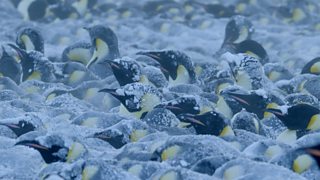
Frustratingly, after that glimpse of sun we were hit by a storm, which lasted for five days. We couldn't go down to the colony to see if there had been any change. We simply had to wait it out. As soon as there was a break in the weather, we headed to the edge of the ice shelf to see the penguins. At first glance everything looked normal, but then we saw what could only be the first females tobogganing towards the colony. This was extremely exciting! Suddenly the unmistakable high-pitched call of a chick pierced through the quiet. This was something we weren’t expecting! Lindsay zoomed right in with his camera and after some searching, saw a tiny chick tucked underneath its father’s brood pouch. The hatching had begun!
From the moment the chicks hatched and the females returned to start the process of locating their mates and chick, the real drama of the film began. We didn’t know at the time, but the story was only just beginning - and it was about to get really, really interesting.
